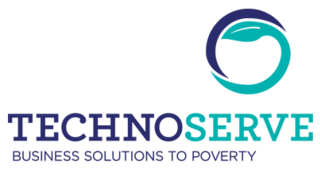Related Research Articles

Davis, known prior to 1907 as Davisville, is a city in the U.S. state of California and the most populous city in Yolo County. It had a population of 65,622 in 2010, not including the on-campus population of the University of California, Davis, which was over 9,400 in 2016. As of 2019, there were 38,369 students enrolled at the university.

The University of California, Davis is a public land-grant research university near Davis, California. Named a Public Ivy, it is the northernmost of the ten campuses of the University of California system. The institution was first founded as an agricultural branch of the system in 1905 and became the seventh campus of the University of California in 1959.

Mukono is one of the districts in the Central Region of Uganda. The town of Mukono home to the district's main commercial center and district headquarters.

Uganda Christian University (UCU) is a private church-founded university administered by the Church of Uganda. It was the first private University in Uganda to be awarded a charter by the Government of Uganda.
Lugazi is a town in the Buikwe District of the Central Region of Uganda. The town is also called "Kawolo", and the two names are interchangeably used by the local inhabitants.

TechnoServe is an international nonprofit that promotes business solutions to poverty in the developing world by linking people to information, capital and markets. It is a registered 501(c)(3) based in Washington, D.C., with over 1,540 employees across 29 countries worldwide.
Givology.org is an online giving marketplace through which any Internet user can browse and sponsor students and education projects in the developing world. Founded in 2008 by undergraduate students at the University of Pennsylvania, Givology currently has 501(c)3 tax-exempt status. It is the first education crowdfunding platform.
Naggalama Hospital, whose full name is St. Francis Hospital, Naggalama, is a hospital in Naggalama, Mukono District, in the Central Region of Uganda. It is a private, non-profit, faith-based community hospital, owned by the Roman Catholic Diocese of Lugazi.
Stichting SYPO is a Dutch NGO established in 2003, with the objective to 'offer structural aid in Uganda by initiating and supporting projects with a sustainable, entrepreneurial character'. SYPO focuses on microfinance and SME financing in rural areas. The NGO has confined its operations to the former Mukono District. SYPO works with around fifteen volunteers in the Netherlands, and works with paid employees and partner projects Uganda. The core focus of SYPO is microfinance, through its Ugandan subsidiary SYPO Uganda Ltd. The main achievement of SYPO has been to develop a business model to reach women in very remote areas with low-cost business loans, relying on "lean" principles, mobile money and online technology systems. SYPO's Director is Duko Hopman, supervised by a board which is chaired by Ger van der Bruggen.

Buikwe District is a district in the Central Region of Uganda. It is named after its 'chief town', Buikwe, where the district headquarters are located.
International Relief and Development, Inc. (IRD), renamed Blumont, is an organization that purports to provide relief, stabilization, and development programs worldwide. In 2015, IRD was the subject of a Washington Post investigation that highlighted the organization's performance and management of taxpayer money. Among other irregularities, the organization had charged the US Government $1.1 million for staff parties and retreats at exclusive resorts. In January 2016, IRD announced that it was changing its name to Blumont and relocating to Madison, Wisconsin.
Makerere University Walter Reed Project (MUWRP) was established in 2002 for the primary purpose of HIV vaccine development and building of vaccine testing capability in Uganda. It is one of the 5 international research sites established by the Department of Defense (DoD) United States HIV Research Program (MHRP), a program centered at the Walter Reed Army Institute of Research (WRAIR) in Silver Spring, Maryland. MUWRP's main facility is centrally located in Kampala, near the Makerere University College of Health Sciences where the MUWRP laboratory is located. The main facility includes the clinic, administrative and data offices.
Kasawo is an urban centre in the Mukono District, Central Region of Uganda.

The Board for International Food and Agricultural Development (BIFAD) advises the United States Agency for International Development (USAID) on issues concerning agriculture, Higher Education in developing countries, and food insecurity. BIFAD was established by Title XII of the Foreign Assistance Act, and both the BIFAD board and Title XII recognize the critical role of U.S. land-grant institutions in food and agricultural security, domestically and abroad. BIFAD consists of seven board members appointed by the White House, four of which must come from the US Academic community. The board's mission is to draw on higher educations's expertise and scientific knowledge to advise the U.S. international assistance efforts along with domestic efforts to end food insecurity.
St. Charles Lwanga Buikwe Hospital, also Czech–Slovak–Ugandan Hospital, is a community hospital in the Central Region of Uganda. It is affiliated with the Uganda Catholic Medical Bureau.
Florence Ndagire is a female Ugandan lawyer, who works as a legal researcher and human rights lawyer at the United Nations (UN) based in Geneva, Switzerland. Ndagire, who is totally blind, also serves as the chairperson of the UN Women Regional Group, for Eastern and Southern Africa, comprising twelve countries. She is the first visually impaired person, male or female to qualify and receive licensure as a lawyer in Uganda.
Katosi Water Works (KWW), also Katosi Water Treatment Plant is a water purification project in Uganda.
Emma Naluyima is a Ugandan veterinarian, urban farmer, businesswoman, elementary school educator and animal & crop farming instructor. It is calculated that she earns approximately US$100,000 annually from her farm situated on 1.0 acre (0.40 ha), in Bwerenga, Wakiso District, Uganda.
References
- ↑ "Archived copy". www.nourishinternational.org. Archived from the original on 2007-11-11.
{{cite web}}: CS1 maint: archived copy as title (link) - ↑ "Engineers Without Borders @ UC Davis". www.ewbdavis.net. Archived from the original on 2008-11-21.
- ↑ "About RASD". www.duke.edu. Archived from the original on 2011-10-09.